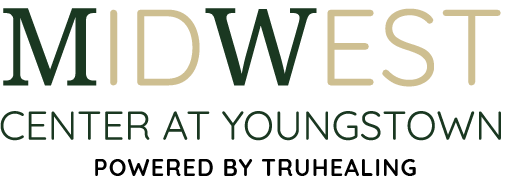Detox is not the sole benefit of a comprehensive treatment program. After substance use is paused, clients must be encouraged to explore some of the underlying factors that may have contributed to their self-medicating with drugs or alcohol. Then, new strategies must be learned and practiced, helping them improve all aspects of life moving forward. Dialectical behavior therapy is a versatile, evidence-based set of tools that not only prevents clients from engaging in self-destructive behaviors but cultivates the skills required for them to construct a happier existence.
When seeking a dialectical behavior therapy program in Ohio, consider treatment at Midwest Center at Youngstown. Our clinical experts understand the various co-occurring disorders that often accompany substance use and can set you on a better path. Call our team today at 844.544.0502 to take the next steps towards a more mindful and satisfying life.
What is Dialectical Behavior Therapy (DBT)?
Dialectical behavioral therapy, or DBT, is a therapeutic intervention that can treat individuals with borderline personality disorder (BPD). It is now often a part of treatment for difficult-to-treat clients, individuals coping with multiple diagnoses, and those unable to self-regulate impulsive, anti-social, or otherwise problematic behaviors.
DBT can be used in both individual and group counseling and stresses the development of:
- Distraction tolerance, offering ways to reduce the impact of fear or anxiety in daily living by learning how to withstand controlled stress.
- Emotional regulation, teaching individuals how to recognize and process intense emotions, while offering techniques to manage socially inappropriate reactions
- Mindfulness skills, helping individuals in treatment truly experience the current moment by tapping into their five senses and acknowledging their true feelings
- Interpersonal communication, allowing for more transparent and effective communication, and teaching individuals how to appropriately assert their needs to one another
- Self-acceptance, encouraging individuals to accept themselves and their given life circumstances while empowering them to change factors within their control
DBT has proven especially helpful with individuals who experience difficulty regulating their emotions or have exhibited co-occurring disorders with a tendency towards self-destructive behavior such as:
- Anger management issues
- Anxiety
- Attention-deficit/hyperactivity disorder (AD/HD)
- Depression
- Disordered eating (anorexia nervosa, binge eating, bulimia)
- Obsessive-compulsive disorder (OCD)
- Post-traumatic stress disorder (PTSD)
- Suicidal ideation
- Violent behavior
DBT accomplishes this through a standard 4-stage protocol. These stages involve 1) discontinuing self-harming behaviors, 2) introducing life skills, 3) building relationships, and 4) exploring self-actualization and joyful living.
How Can DBT Assist in Recovery From Substance Use?
Many individuals in recovery require treatment for co-occurring disorders; in fact, their substance use may often be symptomatic of an additional mental health need, rather than the other way around. The mindfulness skills obtained in DBT permit those attempting to overcome substance use a critical barometer to measure their own stress levels, which assists in avoiding potential triggers and allows them the opportunity to select alternate coping mechanisms when living in recovery.
DBT does require a sizable time commitment and a dedicated effort on the client’s part to put their newfound skills into practice. However, this process is ideal for inpatient and intensive outpatient programs. In these sessions, individuals coping with substance use frequently interact within a cohort, actively supporting one another’s growth. DBT has also been shown to help those in treatment stay in treatment.
Discover the Benefits of DBT at Midwest Center at Youngstown
If you are struggling with substance use, you are not alone. Acknowledging the need for help is the first step in actively constructing the life you have only imagined until now. DBT at Midwest Center at Youngstown can help you shape a new reality. Contact our team at 844.544.0502 to learn more about the role of DBT within our holistic approach to mental wellness today.

